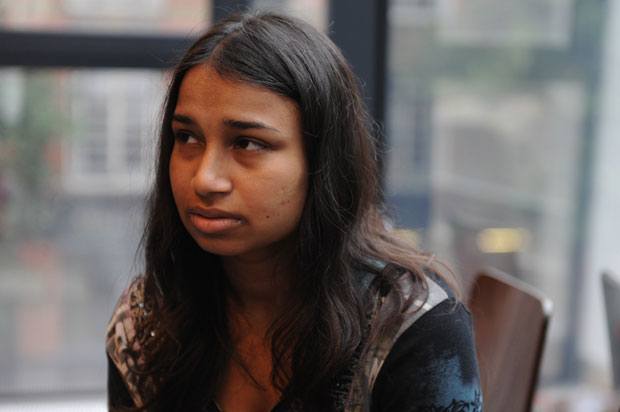I’m on the waiting list for counselling … now what?
You've overcome something huge and have visited your GP about your mental health. They've referred you for counselling, CBT, or therapy ... but now what? The waiting lists can be pretty damn long, so we spoke to Simona Campli, counsellor at The Mix, and GP Dr. Suzanne Evans to get some advice for what to do in the meantime.

You might still feel lost, but there are actions you can take
Congrats, you went to your GP!
Seriously, that’s awesome. You star. The first step to getting support can be daunting and uncomfortable so we hope you feel like a hardcore badass, and that some weight has been lifted from your shoulders.
Why ARE the waiting lists so long?
It’s frustrating. Really frustrating. You spend so much energy and emotion going to get support, and then you’re told you have to wait weeks or a few months for an assessment.
But there are reasons for the long wait:
- So many people are now speaking up about their mental health struggles (which is brilliant – no more struggling in silence) that there aren’t enough professionals to cope with the demand.
- There’s little NHS funding to pay for more counsellors, therapists, resources, and treatments.
- Private mental health treatment is more responsive to this demand, but is obviously way more expensive than the free NHS support.
What can you do while you wait?
Although it can seem like you’re thrown back into the wilderness when on a waiting list, there are some things you can do in the meantime. They’re mostly classic self-care techniques but are definitely worth emphasising.
“Mindfully walk or take regular exercise,” counsellor Simona Campli suggests. “Spend time in nature, have a go at meditation, and spend time being open with friends and family. There are a number of activities that could relax and inspire you, and support self-growth.”
A notably great shout is keeping a journal for your thoughts and feelings. Write down any bad thoughts you have, as well as any good ones. Not only could getting everything out of your head and on to paper/a screen help you, but it’s a great resource to give to your counsellor/therapist when you end up seeing them.
Your GP can also prescribe you antidepressants. Here at The Mix we have everything you need to know about antidepressants including FAQs, how to come off antidepressants, and whether you should take them at all.
What if you’re not ready for self–care?
Self-care is usually the most effective when you’re stable with your mental health and can spot the signs of something being iffy, so it’s totally fair that sometimes the suggestion of self-care is annoying.
Thankfully, there are many wonderful charities who can help you too. Lots of them offer various support systems to suit your needs, and are free.
Some charities offer general mental health support:
- We have a free helpline open every day, 11am – 11pm, one to one webchat, group chats, and discussion boards.
- Mind has an infoline (0300 123 3393) and text service (86463) open 9am – 6pm Monday to Friday (charges dependent on your mobile phone provider or local rates if calling from a landline), online community Elefriends, and local Mind centres.
- SANE runs an out-of-hours helpline (0300 304 7000) open 4:30pm – 10:30pm every day of the year (charges dependent on your mobile phone provider or local rates if calling from a landline) and a support forum.
- YoungMinds has a wealth of information on their website for lots of different issues.
- Childline has a free helpline (0800 1111) and a 1-2-1 counsellor chat service open any day at any time if you’re under 19.
Other charities offer support for specific issues:
- selfharm UK provides information and a safe space for young people to ask questions about self-harm.
- Beat has a free youth helpline (0808 801 0711) open every day 3pm – 10pm, message boards, and chat rooms to support anyone with an eating disorder.
- Cruse offers support for those dealing with bereavement. You can call their helpline for free (0808 808 1677), email them, or take part in face-to-face group support.
I’m feeling worse, what shall I do?
“If you start to feel worse while you’re on the waiting list, contact your GP who might need to refer you to the crisis team,” Dr. Suzanne Evans says. “Your GP can also make contact with the counselling/psychological service, requesting some priority.”
Feeling worse may also be a reaction to antidepressants. You can often feel worse before you feel better when starting this medication, but definitely keep speaking to your GP about how you’re doing. They can adjust your dose or try you on a different antidepressant if necessary.
Being on the waiting list never means you’re alone. Your GP is always there to support you, as are mental health charities and friends and family. However, if you feel you’re in crisis and can’t get to your GP, you can always call 999 or the Samaritans for free on 116 123, or email [email protected].
Remember that you’re brave and wonderful for seeking support. It can be a struggle waiting to grab it, but it’ll be worth it in the end. Keep looking after yourself, keep talking, and never give up.
Next Steps
- Anyone can contact the Samaritans on their 24-hour helpline to talk things through. 116 123
- Mind offers advice and support to people with mental health problems. Their helpline runs nine to six from Monday to Friday. 0300 123 3393
- SANE offers support and information to people affected by mental illness. Call their helpline on 0300 304 7000, open 4:30pm - 10:30pm every day.
- YoungMinds are the voice for young people's mental health and wellbeing.
- You can talk to Childline about anything. Call them for free on 0800 1111 or visit their website.
- selfharmUK provides information and advice about self harm. You can ask a question to their expert panel or share your story.
- Beat help people overcome eating disorders through helplines, online support and self-help groups. Call 0808 801 0677 or, if you're under 18, call their Youthline on 0808 801 0711.
- Cruse offers grief and bereavement support via phone, email, and face-to-face. You can call their free helpline on 0808 808 1677 (Monday - Friday, 9.30 - 5pm, extended to 8pm on Tuesdays, Wednesdays, and Thursdays) or visit their website for more support.
- Chat about this subject on our Discussion Boards.
By
Updated on 04-Aug-2017
No featured article










